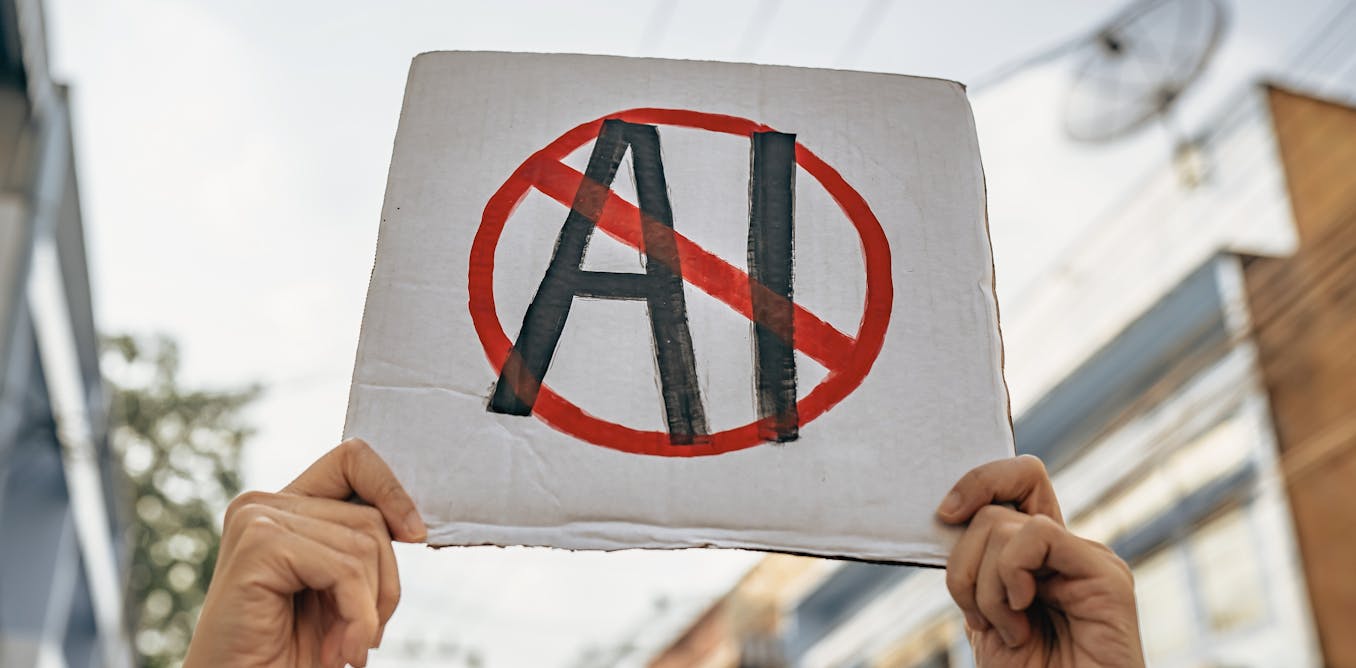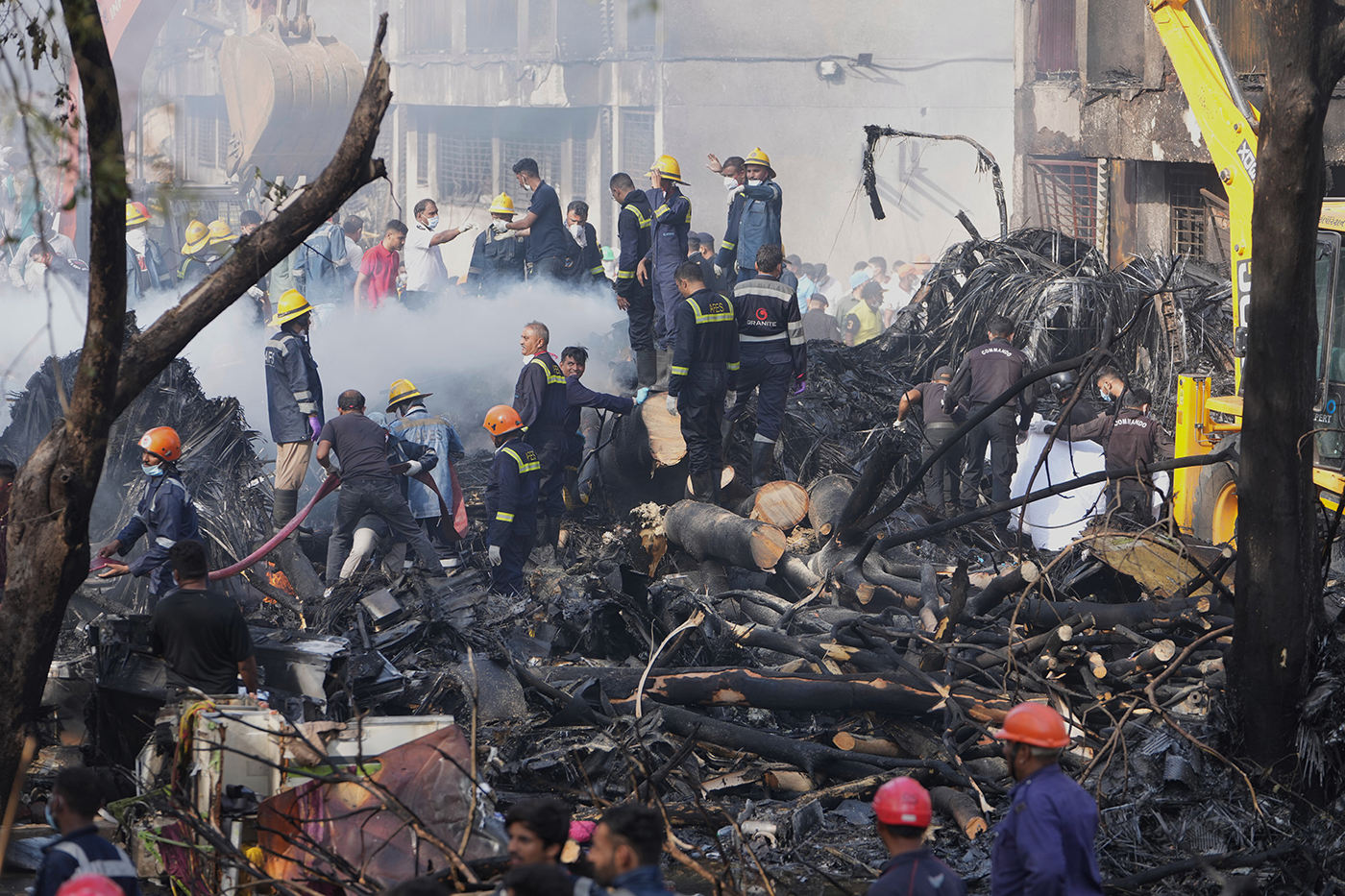Avoiding AI is hard – but our freedom to opt out must be protected
-
You got downvoted because Lemmy users like knee jerk reactions and think that you can unmake a technology or idea. You can’t, Ai is here and it’s forever now. Best we can do is find ways to live with it and like you said, reward those who use it ethically. The Lemmy idea that Ai should be banned and not used is so unrealistic
You seem to misunderstand the ire;
AI in its current state has existed for over a decade. Watson used ML algorithms to beat Jeopardy by answering natural language questions in 2011. But techbros have gotten ahold of it and decided that copyright rules don’t apply to them and now the cat is out of the bag?!? From the outside it looks like bootlicking for the same bullshit that told us we would be using blockchain to process mortgages in 10 years… 10 years ago. AI isn’t just here to stay it’s been here for 70 years.
-
This post did not contain any content.

Avoiding AI is hard – but our freedom to opt out must be protected
As AI algorithms quietly take over life’s most important decisions, the right to opt out is fading – and with it, our autonomy.

The Conversation (theconversation.com)
You don't need AI. There are enough porn sites with real humans.
-
This post did not contain any content.

Avoiding AI is hard – but our freedom to opt out must be protected
As AI algorithms quietly take over life’s most important decisions, the right to opt out is fading – and with it, our autonomy.

The Conversation (theconversation.com)
The problem is not the tool. It's the inability to use the tool without a third party provider.
-
This post did not contain any content.

Avoiding AI is hard – but our freedom to opt out must be protected
As AI algorithms quietly take over life’s most important decisions, the right to opt out is fading – and with it, our autonomy.

The Conversation (theconversation.com)
If there was an ai to detect ai would you use it?
-
By denying corpos data, their models are less effective especially if you are salting it when ever possible.
Do you really need Faceerh and Sundar the creep to have access to your tax returns and locations? Also, do you need them to know you like Asian women with large tits? Or that you and your friends enjoy a hobby?
Doesn't that seem awfully roundabout? You make the practice less effective at the price of also making beneficial uses of the data, eg for medical research, less effective.
The mega-rich can see my tax returns if I can see theirs. The data of the rich and famous is much more valuable than mine. Let's not pretend that this helps the little guy. The little guy doesn't throw around money to get their flight data removed from Twitter.
-
You seem to misunderstand the ire;
AI in its current state has existed for over a decade. Watson used ML algorithms to beat Jeopardy by answering natural language questions in 2011. But techbros have gotten ahold of it and decided that copyright rules don’t apply to them and now the cat is out of the bag?!? From the outside it looks like bootlicking for the same bullshit that told us we would be using blockchain to process mortgages in 10 years… 10 years ago. AI isn’t just here to stay it’s been here for 70 years.
ML technology has existed for a while, but it's wild to claim that the technology pre-2020 is the same. A breakthrough happened.
-
The problem is not the tool. It's the inability to use the tool without a third party provider.
Local is a thing. And models are getting smaller with every iteration.
-
being opt out needs to be a right. That implies that having data be harvested for companies to make profits should be the default.
As the years have passed, it has become the acceptable consensus for all of your personal information, thoughts, and opinions, to become freely available to anyone, at anytime, for any reason in order for companies to profit from it.
People keep believing this is normal and companies keep taking more. Unless everyone is willing to stand firm and say enough, I only see it declining further, unfortunately.
I'm there with you, and I'd join in a protest to get it.
-
You don't need AI. There are enough porn sites with real humans.
And lots of hentai for stuff that is humanly impossible
-
We should have the right to not have our data harvested by default.
I would maybe not go quite that far but at the very least this should apply to commercial interests and living people.
I think there are some causes where it should be acceptable to have your data usable by default, e.g. statistical analysis of health threats (think those studies about the danger of living near a coal power plant or similar things).
I disagree. Yes, there are benefits to a lot of invasions of privacy, but that doesn't make it okay. If an entity wants my information, they can ask me for it.
One potential exception is for dead people, I think it makes sense for a of information to be released on death and preventing that should be opt in by the estate/survivors, depending on the will.
-
This post did not contain any content.

Avoiding AI is hard – but our freedom to opt out must be protected
As AI algorithms quietly take over life’s most important decisions, the right to opt out is fading – and with it, our autonomy.

The Conversation (theconversation.com)
I doubt we'll ever be offered a real opt-out option.
Instead I'm encouraged by the development of poison pills for the AI that are non-consensually harvesting human art (Glaze and Nightshade) and music (HarmonyCloak).
-
I doubt we'll ever be offered a real opt-out option.
Instead I'm encouraged by the development of poison pills for the AI that are non-consensually harvesting human art (Glaze and Nightshade) and music (HarmonyCloak).
But do Glaze, Nightshade, and HarmonyCloak really work to prevent that information from being used? Because at first, it may be effective. But then they'll find ways around those barriers, and that software will have to be updated, but only the one with the most money will win.
-
ML technology has existed for a while, but it's wild to claim that the technology pre-2020 is the same. A breakthrough happened.
Breakthroughs are more or less of a myth. Everything is iterative.
-
But do Glaze, Nightshade, and HarmonyCloak really work to prevent that information from being used? Because at first, it may be effective. But then they'll find ways around those barriers, and that software will have to be updated, but only the one with the most money will win.
AI is a venture capital money pit, and they are struggling to monetize before the hype dies out.
If the poison pills work as intended, investors will stop investing "creative" AI when the new models stop getting better (and sometimes get worse) because they're running out of clean content to steal.
-
I doubt we'll ever be offered a real opt-out option.
Instead I'm encouraged by the development of poison pills for the AI that are non-consensually harvesting human art (Glaze and Nightshade) and music (HarmonyCloak).
Remind me in 3 days.
Although poison pills are only so effective since it's a cat and mouse game, and they only really work for a specific version of a model, with other models working around it.
-
If there was an ai to detect ai would you use it?
Yes. That is actually an ideal function of ethical AI. I’m not against AI in regards to things that is is actually beneficial towards and where it can be used as a tool for understanding, I just don’t like it being used as a thief’s tool pretending to be a paintbrush or a typewriter. There are good and ethical uses for AI, art is not one of them.
-
AI is a venture capital money pit, and they are struggling to monetize before the hype dies out.
If the poison pills work as intended, investors will stop investing "creative" AI when the new models stop getting better (and sometimes get worse) because they're running out of clean content to steal.
AI has been around for many years, dating back to the 1960s. It's had its AI winters and AI summers, but now it seems we're in an AI spring.
But the amount of poisoned data is minuscule compared to the data that isn't poisoned. As for data, what data are we referring to: everything in general or just data that a human can understand?
-
I doubt we'll ever be offered a real opt-out option.
Instead I'm encouraged by the development of poison pills for the AI that are non-consensually harvesting human art (Glaze and Nightshade) and music (HarmonyCloak).
I’ve deleted pretty much all social media, I’m down to only Lemmy. I only use my home PC for gaming, like CiV or cities skylines or search engines for things like travel plans. I’m trying to be as offline as possible because I don’t believe there’s any other way to opt out and I don’t believe there ever will be. Like opting out of the internet is practically impossible, AI will get to this point as well
-
being opt out needs to be a right. That implies that having data be harvested for companies to make profits should be the default.
As the years have passed, it has become the acceptable consensus for all of your personal information, thoughts, and opinions, to become freely available to anyone, at anytime, for any reason in order for companies to profit from it.
People keep believing this is normal and companies keep taking more. Unless everyone is willing to stand firm and say enough, I only see it declining further, unfortunately.
The death of the private life
-
This post did not contain any content.

Avoiding AI is hard – but our freedom to opt out must be protected
As AI algorithms quietly take over life’s most important decisions, the right to opt out is fading – and with it, our autonomy.

The Conversation (theconversation.com)
AI is everywhere now, but having the choice to opt out matters. Sometimes, using tools lik Instant Ink isn't about AI it’s just about saving time and making printing easier.







